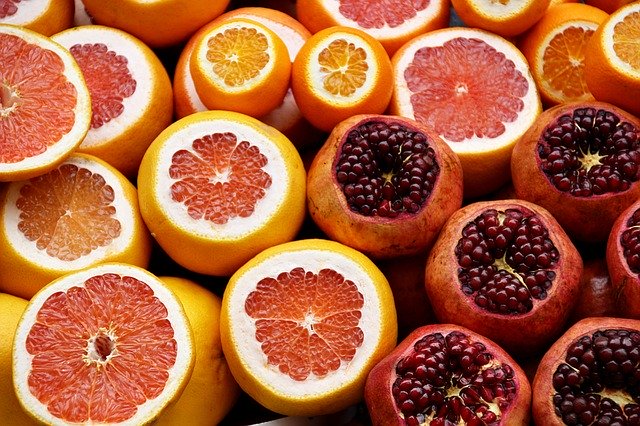Read the first part of this series of nutrition articles here!
If you are detoxing or in early sobriety, incorporate the following tips into your lifestyle now, to ensure you feel better, faster. Basic balanced nutrition helps optimize energy, restore biochemical function and recharge health. It can also head off bouts of being “hangry” and the temptation to turn to food as a substitute addiction when detoxing. Extreme diets are not needed for successful recovery, and in fact may create health risks. Consuming regularly-timed meals full of brightly-colored vegetables and fruit, with proteins and whole grains at most meals, all prepared with healthful plant-based fats, is effective, as scientific studies show. Let’s delve into general nutrition strategies that will help most people rebound to health.
Consume healthy proteins at every meal.
Foods such as beans, tofu, and fish provide the building blocks for muscles, immune cells and mood-stabilizing neurotransmitters. They help ease the blood sugar swings that may accompany detox and amp up cravings and irritability. A balanced and varied diet provides enough protein for most people’s needs (including well-planned vegetarian and vegan diets), and spreading meals throughout the day ensures maximum utilization.
Keep drinking – water, that is!
Staying hydrated helps your body remove toxins and wastes. Dehydration can lead to irritability, headaches, and low mood or energy. Additionally, it can be mistaken for hunger or cravings for substances. Water is the best choice – add citrus slices to keep it interesting or brew herbal teas. Stick with non-caffeinated teas, and be cautious about coffee. This is because caffeine can spike anxiety, interfere with sleep, and potentially trigger the same reward centers in the brain as do drugs of abuse.
Stay hydrated with refreshing fruit waters while detoxing.
Avoid added sugars.
Added sugars are bad news because they negatively impact blood sugar balance, add excess calories, and can trigger the same neural pathways in the brain that drugs of addiction do, while offering no health benefit. This is not to say that you should never eat dessert again – it’s part of a joyous life for many people to find balance between over-using sugar vs. completely swearing off anything that seems too tasty. Balance for many people means not relying on sugar to manage the physical and psychological discomforts of life, while still allowing yourself the occasional sweet treat. Others will find that they cannot consume added sugars in moderation at all – we’ll discuss this further in the section on nutrition challenges that relate specifically to alcohol.
Love your gut.
Probiotic foods like yogurt and sauerkraut provide digestive and mood support, among other benefits currently being researched. Vegetables and whole grains nourish the healthy bacteria already in your gut to enhance immunity, and eating this way can even lead to cravings…for more healthy foods! If you are abstaining from alcohol, skip the kombucha – many commercially available products have a small percentage of alcohol left from the fermentation process, and any health benefit it provides is not worth potentially derailing your sobriety.
Enjoy healthy fats.
Avocado, nuts, olive and coconut oil – these delicious plant-based fats are necessary for optimal brain function and absorption of some vitamins. Omega-3 fats (from flax, walnuts, and fish like wild salmon and sardines) are also key, as they may decrease depression and chronic inflammation whilst increasing brain and heart health. In contrast to past fat-free fads that actually led to increased obesity for many people, current health guidelines emphasis enjoying high quality fats rather than trying to bring all fat consumption down to the lowest possible level. With substances of abuse out of the picture, now is the time to let go of yesterday’s low-fat hysteria as well, and enjoy one of nature’s most delicious sources of wholesome nourishment!
Food is medicine in early sobriety.
Eat every three or four hours.
Have you ever been “hangry”? That’s when you’re hungry, which creates an escalating level of hormonal stress in your system, leading to an emotional feeling of being angry as well. This is a danger zone, as it is easy to become so emotionally stressed that you can’t think clearly, and are at higher risk of relapsing on your substance of choice in a misplaced attempt to feel better. During detox, hunger signals from the body can be faulty, easily missed, or misinterpreted – often as a desire to use. Early sobriety is not the time to experiment with trendy diets like intermittent fasting. Your body and brain need the nutrients provided by regular mealtimes in order to heal and balance your blood sugar, calming those cravings. For those whose lives have been chaotic and disordered due to substance abuse, adherence to regular mealtimes can be part of a supportive structure of recovery that offers a wealth of benefits.
Take a multivitamin … maybe.
A moderate dose multi can help ensure your body has all the micronutrients needed to support detox and healing. Look to get no more than 100% of your daily nutrient needs for each vitamin or mineral, as some are dangerous when taken in excess. Beware supplement pushers who want to sell you mega-loads of high-dose pills – it is usually unnecessary and expensive to invest in that kind of stockpile. Some people also find it triggering to be counting out capsules again – even if this time around, it’s vitamins rather than pain pills.
Smart Detox for a Happy, Healthy New Year!
These simple steps will set you up for success with detoxing. It all begins with eliminating the toxins we may have overdone during the festive season – cutting out alcohol, sugar, and ultra-processed foods is one of the most powerful steps we can take to reclaim our innate capacity to feel happy, healthy, and high-energy! From there, including a balanced blend of foods to meet the nutrient needs of our body and brain will replenish our systems. There’s no magic here and no miracles. But it works! And even better, as our bodies adjust to more wholesome, natural foods, it all tastes delicious, even as it reduces cravings and balances our moods and gut health whilst increasing energy. Now who wouldn’t want to do a detox that could promise all that?
It may be a tall order, and I promise you’ll be glad you did it! Pick one change to make each week, and stay with it until it feels easy. Then move on to the next one. When you’ve got these incorporated into your recovery as part of the foundation you live (and eat!) every day, you’ll find that your energy, mental clarity, and mood are all improved. And that leaves you free to enjoy life, and recovery, to the fullest!
| Lulu Cook, APD/RDN, CPC
Dietitian and Counsellor |








1 Comment
///////////found some interesting information